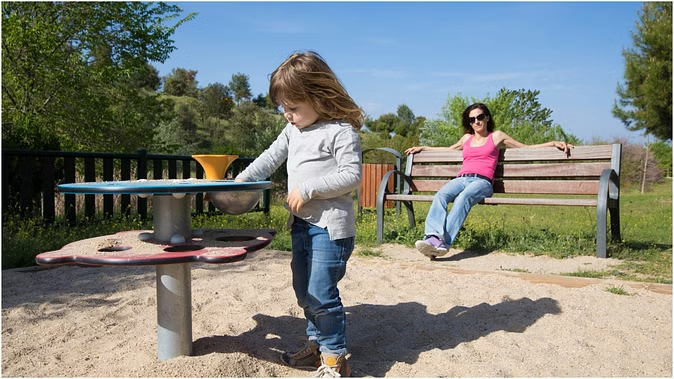As children grow up, they learn to present their side. But if this habit of presenting a side is not logical but takes the form of an argument, then it is important to pay attention to it. Arguing or debating is good, as long as it is done on positive aspects. The habit of arguing is normal in children, which is a part of their mental and social development. Positive debate awakens the feeling of self-reliance in children. But when this debate moves towards negativity and takes the form of a dispute, then it becomes necessary to stop it, because many times arguing also makes children unruly. Therefore, it is important to understand this small difference between children's questions and arguments in time and guide them properly.

What is the reason
Along with physical proportions, children's reasoning and analytical ability also develop with time. They raise questions on various issues and try to find their answers by going deeper into them. Sometimes children start arguing without any reason because they want to draw the attention of people, especially parents, and sometimes children argue to prove themselves right and to strengthen their side.
Your assumptions
When an argument is no longer an argument but takes the distorted form of dispute and arrogance, there are many reasons behind it, such as some things taking the form of knots in the child's mind. He is unable to say his point and is unable to explain it. At the same time, some assumptions made by you for him also force him to argue, such as 'You must have broken it, who else could have done it except you?' or suspecting him if something goes wrong in the house. In this situation, arguing is inevitable, which over time becomes a part of the child's behavior.
Guide
You should listen carefully to the children's argument. Do not question their questions by saying 'You keep quiet'. Answer their every question, so that they do not remain confused and do not start looking for wrong answers to the questions from somewhere else. Teach them to express their thoughts peacefully and not hurt the feelings of others. Also, you should respect their feelings during the argument. By doing this, they will talk to you logically and not argue.
Positive aspects
Arguing improves children's communication skills. They learn to express their thoughts clearly and effectively. This also increases their linguistic ability and communication skills. They look at problems from different perspectives and use new methods to solve them. Through arguing, they gain confidence in their ideas and abilities, which is important for their personal development.

Read the body language
Paediatrician Gargi Malgudi says, arguing increases the child's logical ability. Therefore, listen to the child's argument with tolerance and sensitivity, read his body language, and try to understand him. If his facial expressions start to deteriorate, nostrils start to swell, eyes start to dilate, hands start to tremble and breathing becomes difficult, then understand that the child wants to say something but is saying something else.
When you understand that he is just arguing, then let him say what he wants to say. Then stop this argument understand his problems with love listen to him with full patience and respond to him, because this helps in his development journey. But if arguing becomes a disease, then it is important to cure it soon. For this, take the help of a counselor or a doctor if necessary.
(PC: ISTOCK)










